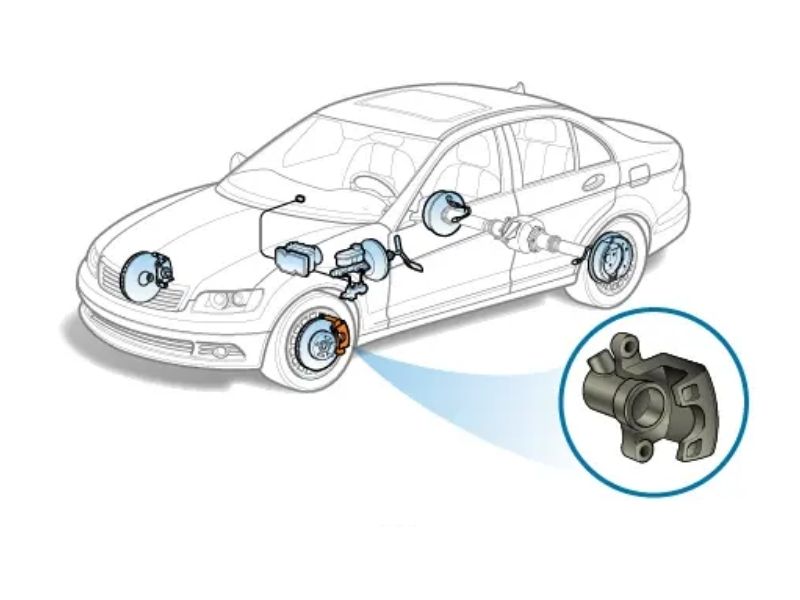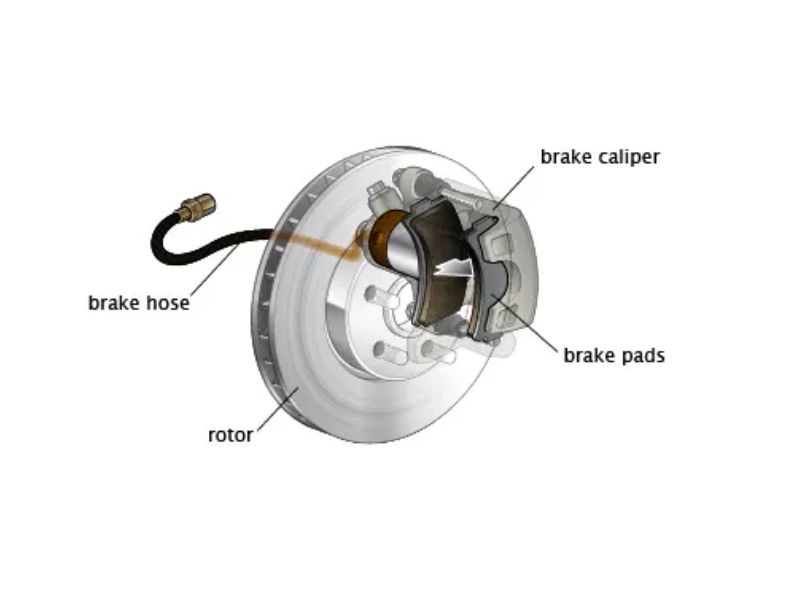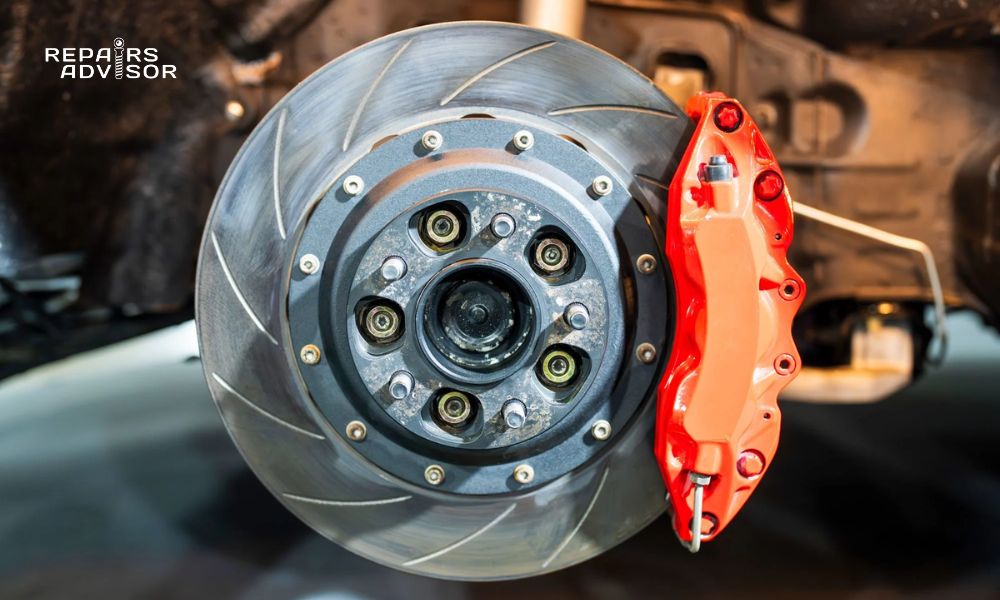When you press the brake pedal, the brake caliper is the part that takes the force and uses it to squeeze the brake pads against the spinning brake disc (rotor). This squeezing action is what slows down your wheel and, eventually, your car.
A bad caliper can wear down your brakes and make it really hard to stop safely, so if you suspect a problem, get it checked out right away!
Simple Signs of a Failing Brake Caliper
- Feels Like the Brakes Are Always On: If your caliper gets stuck in a way that doesn’t fully release the brake pads, it’ll feel like your car isn’t accelerating as easily as it should, or like the parking brake is slightly engaged all the time.
- Your Car Pulls to One Side: This can happen both when you’re braking and sometimes even when you’re just driving straight. While pulling to one side often means you need a wheel alignment, it can also be a sign that a caliper’s internal part (the piston) is stuck.
- Brake Fluid Leak: Over time, the rubber seals inside the caliper can wear out, causing brake fluid to leak. You might see drips on the ground near your wheels, or you might even smell something like burning rubber because the leaking fluid can get hot. This can happen with both types of calipers (fixed or floating).
- Reduced Braking Power: A brake fluid leak will definitely reduce your braking power, as there won’t be enough fluid to create the necessary pressure. You might feel little to no response when you press the brake pedal. Another cause could be sticky caliper parts (sliders). If these get dirty or gummed up, they can’t move freely, making your brakes feel “spongy” – like you have to push extra hard to make the car stop. This is common in “floating” caliper systems.
- Brakes Make Strange Sounds: Don’t ignore odd brake noises! If your brakes are making a loud high-pitched screech, a thud, or a metal-on-metal grinding noise when you try to stop, it could mean your caliper is stuck, loose, or having some other internal problem. This is a clear warning sign.

Important Advice for Brake Caliper Repairs
- If you suspect any brake problem, have your mechanic inspect your car immediately.
- If a caliper is leaking fluid, it will most likely need to be replaced. Very few repair shops try to repair a leaky brake caliper itself.
- If your caliper’s sliders are just gummed up (not leaking), a mechanic might be able to remove, clean, lubricate them with fresh, high-temperature grease, and reinstall them.
- It’s often a good idea to replace calipers in pairs (both on the front or both on the back) because if one has failed, the other side might be close to failing too.
- Depending on how much damage the bad caliper caused, you might also need new brake pads or even brake discs.
- We highly recommend having the brake hydraulic system flushed (new brake fluid added and old removed) whenever calipers are replaced. This helps ensure clean fluid and optimal performance.

Was this helpful?
Thanks for your feedback!
